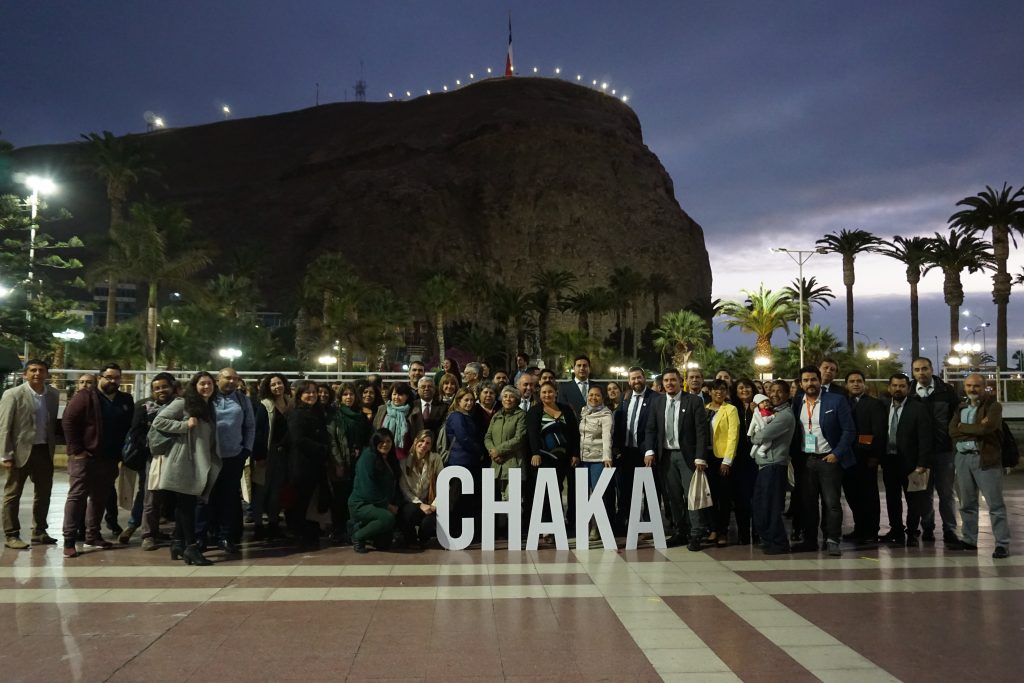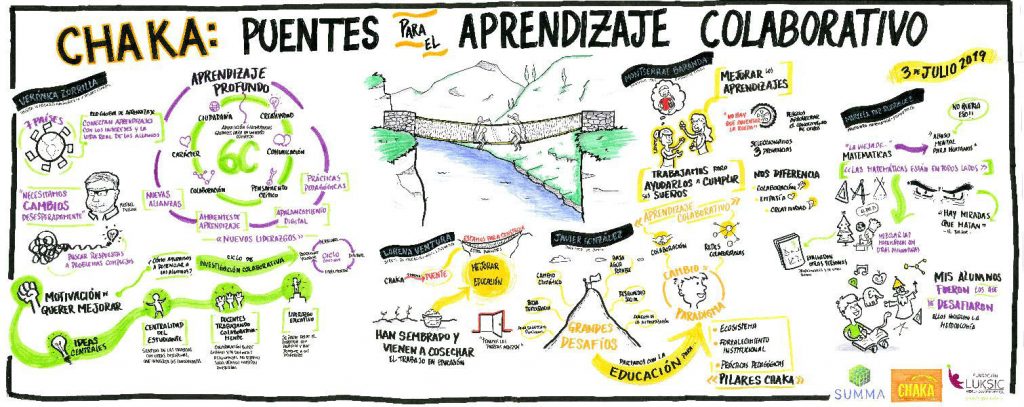COMPARTIR
Technical-professional establishments in Arica bet on innovative model based on collaborative learning
July 4, 2019Between 2019 and 2023, five technical-professional establishments in Arica will be part of Chaka: Puentes para el Aprendizaje Colaborativo (Bridges for Collaborative Learning), a project through which they will implement an innovative pedagogical model to strengthen the capacities of more than one hundred teachers, improve learning and facilitate the development of the collaborative skills of more than one thousand students in this commune of the 15th Region.
The project was presented in Arica on July 2nd, in a ceremony led by the Regional Ministerial Secretary of Education, Lorena Ventura; Montserrat Baranda, Executive Director of Fundación Luksic and Javier González, Director of SUMMA. The activity was also attended by the DAEM director of Arica, Marianela Fornés and the directors, teachers and students of the five educational establishments participating in the project. The activity included an exhibition by the academic Verónica Zorrilla, in charge of Teaching Capacity Development of the Global Learning Network from Plan Ceibal (Uruguay), with vast experience as a researcher in education and in the implementation of network initiatives and collaborative work among teachers.

“With this project, we seek to incorporate innovations that will improve the quality of student learning and strengthen the capacities of the teaching teams in these schools. As a foundation, we have been working for six years alongside secondary technical and professional education high schools in Arica, so we are convinced that generating collaborative networks based on conviction and the desire to implement new pedagogical practices will give students greater opportunities in their academic and life trajectories,” explained Montserrat Baranda, executive director of the Fundación Luksic.
Javier González, director of SUMMA, highlighted that through this project “we want to bet on a society that knows how to collaborate to face its challenges; by teachers and students who, instead of competing, know how to cooperate in order to learn from each other. In addition, in this innovative experience it will also be possible to gather evidence for the consolidation of pedagogical models that can be transferred to other Latin American countries, taking into account the respective contexts and needs of each educational community, impacting beyond our borders”.
Directors, teachers and coordinating teams from SUMMA and the Luksic Foundation participated in the launch of the Chaka project: Puentes para el Aprendizaje Colaborativo (Bridges for Collaborative Learning), in Arica.

About Chaka
The Chaka Project: Puentes para el Aprendizaje Colaborativo (Bridges for Collaborative Learning) is the result of a strategic alliance between Fundación Luksic and SUMMA, non-profit organizations that share a vocation to improve the quality of education in highly vulnerable contexts and understand the role that education has in building a more inclusive society. The initiative envisages a social investment of $543 million per year.
Chaka’s central objective is to improve the learning and quality of the educational experience of all students, with an emphasis on skills training for the 21st century, through the development of effective pedagogical practices based on collaborative learning, the strengthening of institutional and managerial leadership capacities, and the creation of collaborative networks between establishments and within their socio-economic and cultural environment.
The establishments that will participate in Chaka are: Liceo Padre Francisco Napolitano, Colegio Miramar, Liceo José Abelardo Núñez, Colegio Tecnológico Don Bosco and Colegio Leonardo Da Vinci. These educational institutions were selected for their high school vulnerability indexes (School Vulnerability Index [Indice de Vulnerabilidad Escolar- IVE] average of 90%), their learning outcomes in Language and Communication, and Mathematics, and the access rates of their graduates to higher education.
This intervention model is based on collaborative learning, a pedagogical practice that promotes learning through collaborative interactions and seeks the commitment of each student to their own learning process and that of their peers. This methodology contributes to the development of fundamental skills in today’s world such as critical thinking, the ability to listen to and reformulate the opinions of peers, to reconstruct one’s own thinking in order to make better decisions and to reflect on the actions taken and their consequences.
